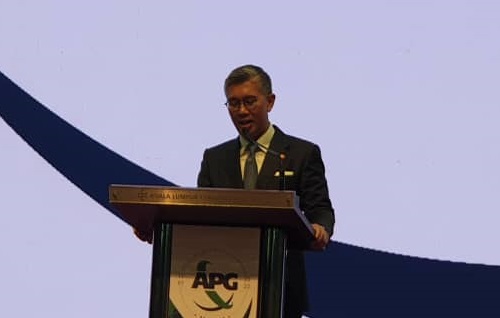
KUALA LUMPUR, July 26 – Citing the International Monetary Fund’s estimates that revenues are higher in countries perceived to be less corrupt, and the cost of corruption globally, Finance Minister Tengku Zafrul Aziz said Malaysia would continue to push for reforms towards accountability and integrity in governance and business.
Addressing the plenary session of the annual meeting of the Asia/ Pacific Group on Money Laundering (APG) at the Kuala Lumpur Convention Centre, here today, Zafrul said the least corrupt governments
collect 4 percent of GDP more in taxes than those at the same level of economic development with the highest levels of corruption.
With the responsibilities of retaining Malaysia’s economic recovery amid the prevailing global challenges including the ones left by the Covid-19 pandemic and the war triggered inflation, the Malaysian government will continue with the structural reforms that will be critical to sustaining the economic development and progress as a nation, he said.
Towards this, the government will be committed to implementing the identified measures under the National AntiCorruption Plan 2019 – 2023 (NACP) with focus on achieving integrity and good governance, which will be crucial in supporting the recovery ahead.
“Our economic recovery cannot be sustained unless it is accompanied by sound institutional and structural reforms.
Corruption has been recognised as one of the most prevalent offences that give rise to money laundering, together with smuggling, fraud, illicit drug trafficking and organised crime.
Other goals of the NACP include tightening accountability and credibility of judiciary, prosecution, and
law enforcement agencies, to raise the efficiency and responsiveness in public service and integrity in business.
Ongoing initiatives under the NACP include the introduction of a comprehensive policy on disclosure of conflict-of-interest for government procurement as well as implementation of a corporate
liability provision under section 17A of the MACC Act that created a new strict liability offence for a commercial organisation, he said.
In addition, the Special Court for Corruption has expanded the application of technology to improve institutional efficacy of the judicial system in handling corruption cases.